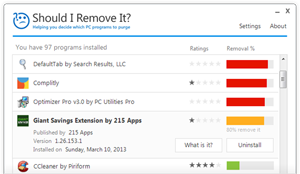Import table
kernel32.dll
WideCharToMultiByte, MultiByteToWideChar, GetLastError, IsBadWritePtr, IsBadReadPtr, GetTickCount, VirtualAlloc, VirtualFree, OutputDebugStringW, FreeLibrary, LocalFree, FormatMessageA, LoadLibraryExW, WriteFile, CloseHandle, CreateFileW, GetFileSizeEx, SetFilePointer, ReadFile, FlushFileBuffers, SetEndOfFile, HeapAlloc, GetProcessHeap, HeapFree, QueryPerformanceFrequency, QueryPerformanceCounter, Sleep, InterlockedExchangeAdd, GetCurrentThreadId, GetCommandLineA, GetVersionExA, RtlUnwind, RaiseException, GetSystemTimeAsFileTime, HeapReAlloc, GetConsoleCP, GetConsoleMode, GetFullPathNameW, EnterCriticalSection, LeaveCriticalSection, HeapDestroy, HeapCreate, DeleteCriticalSection, TerminateProcess, GetCurrentProcess, UnhandledExceptionFilter, SetUnhandledExceptionFilter, IsDebuggerPresent, GetProcAddress, GetModuleHandleA, ExitProcess, TlsGetValue, TlsAlloc, TlsSetValue, TlsFree, InterlockedIncrement, SetLastError, InterlockedDecrement, SetHandleCount, GetStdHandle, GetFileType, GetStartupInfoA, GetModuleFileNameA, FreeEnvironmentStringsA, GetEnvironmentStrings, FreeEnvironmentStringsW, GetEnvironmentStringsW, GetCurrentProcessId, GetCPInfo, GetACP, GetOEMCP, IsValidCodePage, LCMapStringA, LCMapStringW, GetTimeZoneInformation, HeapSize, SetStdHandle, CreateFileA, WriteConsoleA, GetConsoleOutputCP, WriteConsoleW, GetCurrentDirectoryA, GetDriveTypeA, InitializeCriticalSection, LoadLibraryA, GetStringTypeA, GetStringTypeW, GetLocaleInfoA, CompareStringA, CompareStringW, SetEnvironmentVariableA, CreateMutexW, WaitForSingleObject, ReleaseMutex
Export table
ArchClose
ArchDoesMemberExist
ArchFindItemByPath
ArchInit
ArchNextItem
ArchOpenBuffer
ArchOpenFile
ArchOpenStream
ArchReadMemberToBuffer
ArchReadMemberToFile
ArchRemoveMember
ArchSetEncryptionKey
ArchWriteMemberFromBuffer
ArchWriteMemberFromFile

